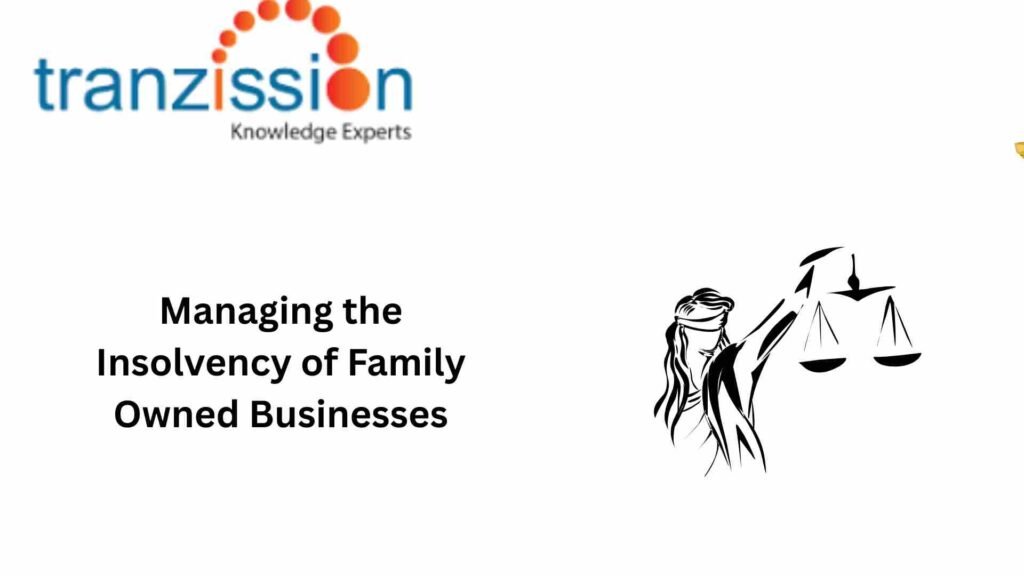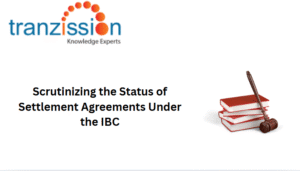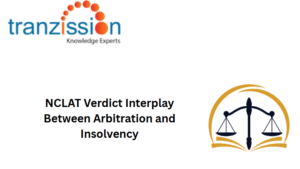
Managing the Insolvency of Family Owned Businesses

Table of Contents
Family-owned businesses are based on relational resources like trust, communication, and a shared vision of success among all members. It allows all members of the company to participate in important decisions and its growth. The Insolvency of Family Owned Businesses has several factors that are significantly different from other companies or firms. This article elaborates on these factors and recommends certain actions that will help in the case of insolvency, or prevent insolvency altogether.
Challenges Unique to Insolvency of Family Owned Businesses
Insolvency of Family Owned Businesses face unique challenges stemming from the intertwined nature of family and business, including emotional attachments, potential conflicts, and the complexities of navigating succession and family dynamics during a crisis:
Read more: Section 148 of negotiable instrument act
Emotional and Legacy Concerns:
The deep emotional connections to the business complicate decision-making during financial distress. Families often grapple with legacy concerns and disagreements over the business’s future, succession plans, or the distribution of assets can escalate during insolvency, exacerbating the situation.
Reputation Risks:
Insolvency can harm the business’s public perception and family brand. Having a negative reputation impacts personal relationships and future business endeavors.
Financial and Structural Complexities:
Such businesses often have a complex web of financial relationships, making it difficult to separate personal and business assets and liabilities. Family finances make asset division and debt restructuring challenging. Informal decision-making processes often lack the rigor needed for insolvency management.
Cost-Effective Ways to Close a Family Business
Voluntary Liquidation:
This type of liquidation is self-imposed and is decided by the company’s leader. Voluntary liquidation allows a family business to terminate its operations, sell assets, and settle debts with court intervention. It involves liquidating the company’s assets to pay off creditors and provides a structured and transparent way to wind down operations.
Restructuring and Negotiation with Creditors:
Insolvency of Family Owned Businesses can negotiate favorable terms with creditors to avoid abrupt closures. This not only provides an option for family members to preserve their reputation but also helps them to avoid further conflicts. It is necessary to engage early with professional insolvency advisors to map out restructuring options.
Filing for Bankruptcy as a Last Resort:
Bankruptcy can provide a fresh start by legally discharging debts. However, as it is seen in a more negative light, bankruptcy should be the last option for family-owned businesses. If a business feels that bankruptcy is the most viable choice, it is advised to work with legal and financial advisors to mitigate potential risks.
Protecting the Reputation of a Family Business During Insolvency
During a Insolvency of Family Owned Businesses protecting its reputation requires proactive communication, transparency, and a focus on rebuilding trust with stakeholders, while adhering to ethical and legal standards:
Communication Is Key:
Businesses need to develop a transparent communication strategy to keep stakeholders informed while ensuring employees, creditors, and customers will receive continuous information about the business’s future.
Highlighting Legacy Over Failure:
Businesses need to ensure the family’s commitment to its community and employees during the resolution process. They can use media or public statements to frame the closure as a strategic, necessary step.
Leveraging Professional Help:
It is necessary to seek guidance from insolvency professionals, legal advisors, and financial experts to navigate the process effectively. For instance, public relations consultants can help manage media narratives during insolvency and legal advisors can navigate reputational risks stemming from creditor disputes.
Avoiding Insolvency in Family Businesses
To avoid insolvency in a family business, focus on strong financial management, establish clear roles and responsibilities, and implement measures to mitigate risk:
Financial Discipline:
The first step is to maintain separate accounts for personal and business finances to ensure accurate budgeting and conduct regular audits to identify potential financial red flags.
Succession Planning:
Businesses need to have a clearly defined leadership and drafting succession plans can prevent internal conflicts that lead to insolvency. For instance, a family-owned manufacturing firm avoided insolvency through a well-structured succession plan that brought in external leadership.
Diversification:
Diversifying income streams to safeguard against market downturns can benefit the family-owned business. Further, investing in technology and innovation to stay competitive can help businesses stay relevant in the fast-changing business landscape.
Lessons from Real-world Cases
Cost-Effective Closure Example:
A family-owned retail chain opted for voluntary liquidation after unsustainable losses. By selling off inventory and negotiating with creditors, they ensured a clean exit.
Reputation Management Success:
A family business in the hospitality sector partnered with a PR firm to maintain goodwill even as they filed for bankruptcy. Their messaging focused on legacy and plans, preserving the family’s positive image.
Avoiding Insolvency Case Study:
A multi-generational agriculture business was able to avoid insolvency by diversifying into food processing and securing better financial management tools.
FAQs
What are the warning signs of insolvency in a family business?
Insolvency in a family business can be signaled by financial difficulties like declining cash flow, increasing debts, difficulty meeting obligations, and poor financial record-keeping, and operational issues like high employee turnover and falling margins.
How can family businesses ensure a smooth closure?
Family businesses can improve their chances of a manageable insolvency process by proactively preparing for potential challenges, including financial management, success planning, and involving professional advisors.
Can insolvency damage personal family relationships?
Yes, the financial stress and reputational damage caused by insolvency can negatively impact personal family relationships.
Conclusion
Managing insolvency in family businesses requires a mix of cost-effective strategies, transparent communication, and proactive planning. The emotional and familial aspects of the business can complicate decision-making during insolvency, which can be resolved by clear communication and established roles within the family can help navigate the process more effectively. Whether you’re aiming to close operations or safeguard your business’s future, the right approach can protect both financial and reputational interests. If all other options fail, bankruptcy may be a necessary step, but it’s important to understand the legal and financial implications.





